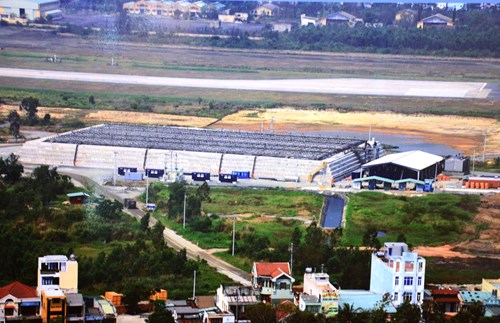November 07, 2018 | 20:42 (GMT+7)
Outcomes of environmental remediation reviewed
PANO – An international workshop on the outcomes of Vietnam-U.S. cooperation in implementing the environmental remediation of dioxin contamination at the Da Nang International Airport was jointly held on November 6 in Da Nang city by the Office of the National Steering Committee on the Settlement of Post-war Unexploded Ordnance and Toxic Chemical Consequences (Office 701) and the United States Agency for International Development.
Reports at the seminar affirmed that around 90,000 cubic meters of dioxin-contaminated sludge and soil have been cleaned and about 50,000 cubic meters of contaminated sludge and soil has been isolated. Around 32.4 hectares of the newly cleaned area will be handed over to the city to expand the airport and to develop its socio-economy.
    |
 |
|
An overview of a remediation area at Da Nang Airport |
Addressing the event, Chief of the Secretariat of Office 701 Than Thanh Cong said that in spite of facing weather and environmental challenges, the project achieved the set goals, successfully cleaning dioxin-contaminated soil and sediment at Da Nang Airport and reducing the risks of dioxin exposure for locals. He added that it helped improve public health and environment as well as strengthen the city’s socio-economy.
Many important lessons on managing, supervising and applying technologies drawn while carrying out the project will help Vietnam effectively conduct other dioxin remediation projects in Vietnam, the office’s chief stressed.
The outcomes of the project reflected the U.S.’s commitment in helping the Vietnamese people have a clean environment to live.
Da Nang Airport is considered a dioxin hotspot in Vietnam. On April 1, 2011, the Ministry of National Defense approved the project to remediate contaminated soil in the airport at a cost of VND 60 billion from the Vietnamese government budget and US$ 110 million from non-refundable ODA of the U.S. government.
Translated by Tran Hoai